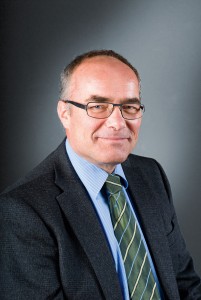
(Chief Editor Mining Report Glückauf)
Editorial
In the first issue of the year I said that the post-mining theme would feature much more prominently than before. I shall now be delivering on this promise. The search for suitable papers quickly showed that this particular topic is simply too diverse for all its aspects to be covered at a single stroke. For this reason the latest edition of Mining Report Glückauf will initially devote itself to water management and will attempt to do this by examining the problem from different perspectives, at different locations and from the viewpoint of different branches of the mining industry. Themes such as how to handle former mining sites and develop alternative-use concepts, and how to manage surface subsidence during the post-mining era, will be covered in future issues.
The multidimensional nature of the post-mining theme includes the news that in 2012 the University of Applied Sciences Georg Agricola joined with the RAG Foundation in establishing an endowed professorship for ‘Geotechnical engineering and post-mining’ and then more recently, on 22 October 2015, opened the Research Centre Post-Mining on the University campus, the only institution of its kind anywhere in the world. This Centre will bundle the expertise that is needed to be able to shape and manage the consequences of the mining industry in a technical, economic and sustainable way.
This know-how includes an awareness of the environmental impact of the mineral substances that are present in colliery waste water and mine tailings. The internationally accepted term for this is ‘acid mine drainage’. A number of papers will focus on this theme and on other issues based on examples taken from water management projects in the Ruhr coalfield, former uranium mining sites in Saxony and Thuringia, and those parts of the Lausatia region that have been affected by opencast lignite mining.
The final contribution is a review of this year’s Annual Report by the German Coal Association. This too examines the problems of the post-mining era, focusing in this case on the range of tasks facing the RAG coal company following the closure of its colliery operations.
These technical papers are preceded by two retrospective reports. The first concerns Auguste Victoria colliery in Marl, which RAG is due to close at the end of 2015 as part of the company’s mine-planning response to the agreed withdrawal of mining subsidies. This provides an appropriate opportunity to look back at the eventful history of the colliery and to assess its importance for the town and surrounding region. The second relates to the Freiberg University of Mining and Technology, which celebrates its 250th anniversary this year. Reason enough to review the history of the TU Bergakademie Freiberg – the oldest university of mining and metallurgy in the world.
With my best regards
Dipl.-Ing. Andreas-Peter Sitte
Chief Editor Mining Report Glückauf, Herne